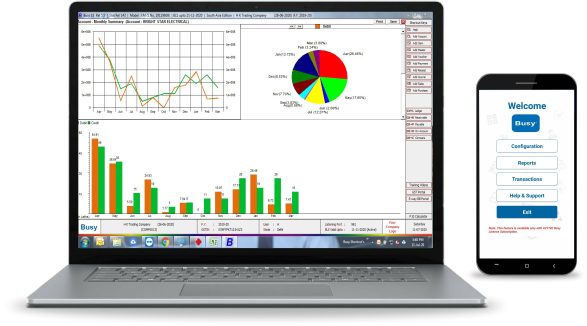As a small business owner, you have a lot on your plate. From managing inventory to keeping up with customer demands, there’s a lot to juggle. And if you’re like most small business owners, you don’t have the time or resources to keep track of your finances on top of everything else. That’s where accounting software comes in. Accounting software can help you automate many of the financial tasks associated with running a small business, from invoicing customers to tracking expenses. But with so many accounting software options on the market, it can be tough to know which one is right for your business. To help you narrow down your options, we’ve compiled a list of the five best accounting software for small businesses.
Xero
If you’re looking for accounting software for your small business, Xero is a great option. Xero is an online accounting software that is simple to use and easy to get started with. It’s perfect for small businesses because it’s affordable and has all the features you need to manage your finances.
Xero has a user-friendly interface that makes it easy to track your income and expenses. You can also create invoices and record payments. Xero integrates with other software applications, so you can easily share data between them. This makes it easy to keep track of your financial information in one place.
Xero offers a free trial so you can try it before you commit to a subscription. And if you decide to sign up, there are various pricing plans available depending on your needs. So whether you’re just starting out or you’re looking for an accounting software upgrade, Xero is definitely worth considering.
Wave Accounting
Looking for accounting software that’s simple to use and easy on the budget, Wave Accounting is a great option. This cloud-based software offers basic features like invoicing, tracking expenses, and creating financial reports. And best of all, it’s free!
Wave Accounting is ideal for small businesses that don’t need complex accounting features. But if you do need more advanced features, there’s a paid version available that includes things like double-entry bookkeeping and support from certified public accountants.
FreshBooks
If you’re looking for accounting software that is specifically designed for small businesses, FreshBooks is a great option. It’s cloud-based, so you can access it from anywhere, and it has a wide range of features to help you manage your finances.
One of the best things about FreshBooks is that it’s very user-friendly. Even if you’re not an accountant or don’t have any experience with accounting software, you should be able to figure out how to use it without too much trouble. There’s also a mobile app so you can manage your finances on the go.
FreshBooks offers a free trial so you can try it out before committing to a subscription. And if you do decide to subscribe, plans start at just $15 per month. Overall, FreshBooks is an affordable and user-friendly accounting solution that is ideal for small businesses.
QuickBooks Online
QuickBooks Online is a cloud-based accounting software that offers small businesses the ability to track income and expenses, create invoices and estimates, manage bills and customers, and more. QuickBooks Online also offers users the ability to connect to their bank account and credit card accounts to automatically import transactions.
FreeAgent
As a small business owner, you need to find an accounting software that fits your budget and business needs. FreeAgent is one of the best accounting software options for small businesses. It is affordable and easy to use. FreeAgent also offers a variety of features that can help you manage your finances and grow your business.
The best accounting software for your business depends on your needs
The best accounting software for your business depends on your needs. If you have a small business, you may not need the same features as a large business. There are many accounting software programs on the market, so it is important to find one that fits your specific needs.
When choosing accounting software, you should consider your budget, the size of your company, and the features you need. There are many free and low-cost options available, so you don’t need to spend a lot of money to get started. However, if you have a larger company or more complex needs, you may want to invest in a more comprehensive program.
There are several different types of accounting software, so you will need to decide which one is right for your business. Some common features include invoicing, tracking expenses, and managing inventory. You should also consider whether you need features such as project management or time tracking. Once you know what features you need, you can narrow down your choices and find the best accounting software for your business.
Joseph has been writing Various Finance Blogs for Line Accountancy and the Open Blogging sites.




